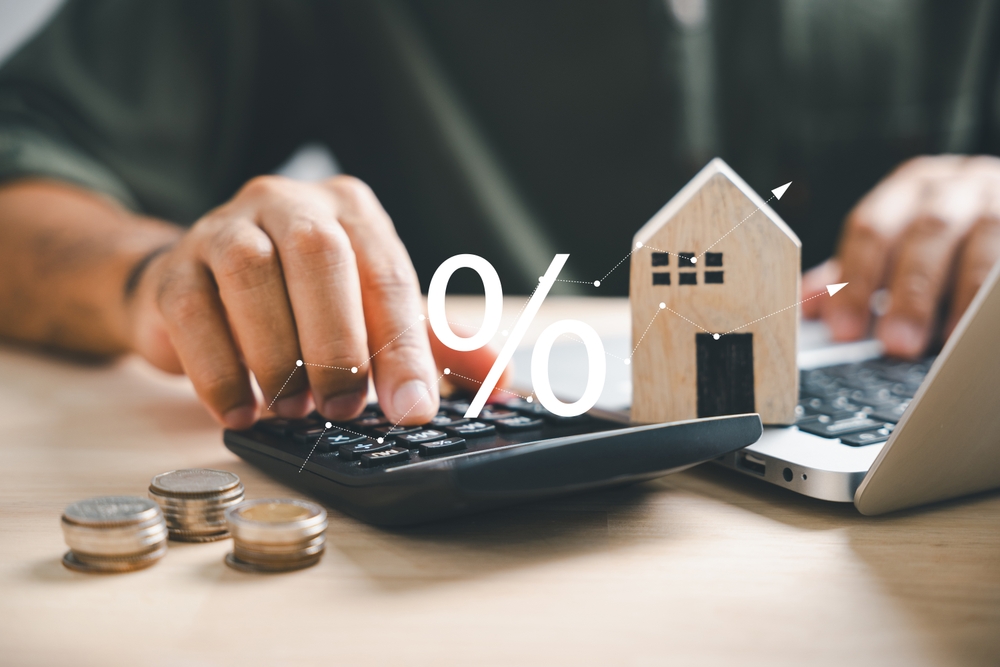8 Countries with No Property Tax: Real Estate Investment Without the Annual Burden

Securing real estate abroad often comes with hidden costs, and one of the most persistent is property tax. For investors and homeowners alike, these recurring annual charges can eat into rental yields and long-term ROI. But a growing number of buyers are turning their attention to countries with no property tax, unlocking opportunities for greater financial efficiency, simplified ownership, and better value retention.
If you’re exploring property purchases as a residency tool, a lifestyle upgrade, or a global portfolio play, here’s your full breakdown of where and why tax-free property markets matter, and where to find them.
Why Consider Countries with No Property Tax
Investment Efficiency and Long-Term Savings
The core appeal of countries with no property tax is obvious: long-term savings. Without recurring annual taxes, investors keep more of their rental income, pay fewer holding costs, and enjoy more flexibility with timing their resale. Especially for those owning multiple properties or long-term rental units, this can mean thousands in yearly savings.
Better Return on Investment
Owning real estate in tax-heavy jurisdictions forces investors to factor in ongoing annual costs that reduce net yield. By contrast, investing in countries with no property tax allows the gross rental yield to more accurately reflect actual profit potential. In many of these jurisdictions, yields remain competitive, and in some cases, market-leading.
Avoiding Regressive Tax Structures
Traditional property tax systems are regressive, meaning owners are taxed regardless of income or cash flow. This can be particularly problematic for retirees, location-independent professionals, or investors who prefer to hold property passively. Countries with minimal or no property taxes create a more neutral, equity-friendly model of ownership.
What is Property Tax and How It Differs from Stamp Duty
What Is Property Tax?
Property tax is an annual levy imposed by local governments based on the assessed value of land and buildings. It applies to personal residences, second homes, and income properties. The burden of this tax sits solely with the owner, regardless of how much income the property generates.
What Is Stamp Duty?
Stamp duty, on the other hand, is a one-time real estate transfer tax that is paid upon purchase. It’s charged as a percentage of the property’s sale price. While still a cost to consider, stamp duty doesn’t affect ongoing property income or ownership holding periods.
In summary:
- Property tax = annual recurring cost
- Stamp duty = one-time transaction fee
Most countries with no property tax still impose stamp duties, but these are far more manageable in long-term financial planning.
UAE: A Booming Market Without Annual Property Taxes
The United Arab Emirates, particularly Dubai, has exploded in popularity for real estate investors. The market is known for cutting-edge infrastructure, high rental yields, and investor-friendly regulation.
- No annual property tax
- One-time 4% property transfer fee
- 5% VAT on commercial properties
- 5.27% gross rental yield (Dubai)
With property prices averaging $4,200 per sqm in Dubai and continued foreign investment inflows, the UAE is a top-tier choice for those seeking long-term exposure in countries with no property tax.
Croatia: A European Gem for Tax-Free Property
Croatia abolished its property tax in 2017 after public backlash, making it a rare European destination where annual ownership taxes are essentially ceremonial.
- No property tax for most owners
- 3% transfer tax on purchase
- 4.78% gross rental yield
Real estate in hotspots like Dubrovnik or Split offers seasonal tourism demand with strong short-term rental performance. Properties range from €1,800 to €4,150 per sqm, depending on location.
Monaco: Tax-Free Property in a Luxury Haven
Monaco, while ultra-premium, offers investors and high-net-worth individuals access to one of the most tax-friendly real estate jurisdictions on the planet.
- No annual property tax
- Stamp duty between 4.5% and 7.5%
- 1% rental income tax, often covered by the tenant
With real estate prices reaching €50,000 per sqm, Monaco is best suited for ultra-high-net-worth investors seeking wealth preservation, privacy, and capital security, all within a property-tax-free environment.
Malta: A Rising Real Estate Market with No Property Tax
Malta has seen record growth in real estate, particularly in 2024, and continues to attract investors with its strategic Mediterranean location and property tax-free model.
- No annual property tax
- Stamp duty: 5% (2% in Gozo)
- 15% rental income tax
Malta’s January 2024 real estate revenue surged by 30%, with prices in Valletta averaging $2,800 per sqm. Investors benefit from a stable legal framework and growing demand, especially among EU citizens and retirees.
Cayman Islands: Caribbean Luxury with Zero Property Tax
A long-time favorite among high-net-worth individuals, the Cayman Islands combine zero-tax living with strong capital appreciation and global prestige.
- No property tax
- 7.5% stamp duty
- Prime beachfront real estate ranging from $4,000 to $8,000 per sqm
While entry costs are high, the Cayman Islands remain one of the best-performing luxury markets for those seeking offshore diversification and tax-free asset growth.
Cambodia: Near-Zero Property Tax and Affordable Real Estate
Cambodia offers one of the most relaxed property tax regimes globally, technically 0.01%, though rarely enforced, making it appealing for budget-conscious investors.
- 0.01% property tax (often waived)
- 4% stamp duty
- Rental income taxed at 10–14% for non-residents
- Prices in Phnom Penh range from $50,000 to $250,000 per apartment
With rental yields of 3.5% to 6.2%, Cambodia provides a compelling case for entry-level buyers targeting countries with no property tax or light enforcement.
Thailand: Minimal Tax for Condo Owners
Thailand’s real estate market is strong, especially for condominiums, which are the only property type foreigners can legally own.
- 0.03% annual tax, only if condo exceeds $274,000
- 2% transfer fee
- 15% rental income tax for non-residents
- Yields as high as 5.79%
From Bangkok ($3,600/sqm) to Chiang Mai ($1,600/sqm), regional price differences provide flexibility across investment tiers.
Georgia: The Ultimate Tax-Friendly Real Estate Market
Georgia offers a unique trifecta: no property tax, no transfer tax, and no stamp duty, provided you aren’t generating income in Georgia.
- Zero taxes for non-income-generating property
- 7.85% gross rental yield, the highest on this list
- Prices in Tbilisi range from $1,000 to $2,500 per sqm
Georgia is ideal for both capital appreciation and cash-flow rental strategies, especially for investors who want long-term holding without fiscal drag. It’s arguably the most tax-friendly country on this list.
How to Navigate Property Investment as a Non-Resident
Buying property in a foreign country requires due diligence, especially when tax benefits are involved. Here are key factors to consider:
- Legal ownership rights: Can you own property in your name, or do you need a local entity or nominee?
- Residency or visa requirements: Some jurisdictions allow real estate as a pathway to residency or citizenship.
- Local taxes and fees: Even in countries with no property tax, other charges like stamp duties, notarial fees, and rental taxes may apply.
- Property management: If renting, factor in costs for local agencies and maintenance.
Working with a vetted investment migration firm like Millionaire Migrant ensures that you’re not just buying property ,you’re securing a compliant, optimized international lifestyle.
Final Thoughts: Choosing the Right Tax-Free Investment Destination
The appeal of countries with no property tax is growing ,not just for their fiscal perks, but for the long-term stability, predictability, and global access they offer. Whether you’re looking for ultra-luxury holdings in Monaco, high-yield rentals in Georgia, or a tropical base in the Cayman Islands, the options are wide-ranging and strategically sound.
Before making your move, align your goals:
- Seeking capital growth? Look at Malta or Dubai.
- Prioritizing rental income? Georgia, Thailand, and Cambodia perform well.
- Want prestige and tax shelter? Monaco and Cayman Islands lead the list.
Need Help?
Your goals deserve a strategy that matches your ambition. At Millionaire Migrant, we’ve spent decades helping individuals and families achieve freedom through tailored investment plans, strategic tax optimization, and second citizenship solutions. Our mission is simple: we help you create a life where you can live, work, and invest with no borders and minimal tax burdens. Ready to redefine your future?
Contact us today and discover how Millionaire Migrant can help you make it happen.
FAQ
1. What does it actually mean when a country has no property tax?
When a country has no property tax, it means that homeowners are not required to pay an annual tax on the assessed value of their real estate. This is a significant financial advantage because in many countries, property taxes are recurring and can increase over time as property values rise. In tax-free jurisdictions, buyers typically only pay one-time fees such as stamp duty or transfer tax at the point of purchase. Once you own the property, there are no ongoing ownership taxes, allowing for better long-term returns, lower holding costs, and simpler financial planning for investors and homeowners alike.
2. Is there a catch to buying real estate in countries with no property tax?
While the absence of annual property taxes is appealing, it’s important to look at the full picture. Many countries that do not charge property tax may still have other fees such as stamp duty, capital gains tax, or taxes on rental income. Additionally, legal structures, foreign ownership rights, and bureaucratic complexity vary widely. Some markets may have limited financing options or require purchases through local companies. That said, with careful due diligence and guidance from local experts, buyers can confidently navigate these challenges and enjoy the long-term financial advantages of investing in property-tax-free countries.
3. Which country offers the best combination of no property tax and high rental yield?
Georgia currently stands out as one of the most tax-efficient property markets in the world. It offers zero property tax, no transfer tax, and no stamp duty for non-resident investors who do not generate Georgian-sourced income. What makes Georgia even more attractive is its high gross rental yield, which sits at around 7.85 percent annually. Property prices in Tbilisi remain competitive compared to other capital cities, and the legal framework is investor-friendly. For buyers focused on income generation without being burdened by annual taxes, Georgia offers one of the best combinations of yield and long-term financial efficiency.
4. Can buying property in a tax-free country help me gain residency or citizenship?
Yes, in some jurisdictions, purchasing property can be a pathway to legal residency or even eventual citizenship. While countries with no property tax typically do not require ongoing tax payments, they may still use real estate investment as a criterion for visa eligibility. For example, the United Arab Emirates offers long-term residency to qualifying property owners, and Malta includes real estate as part of its investment-based residency and citizenship programs. However, the requirements vary widely between countries, and some tax-free jurisdictions do not offer residency rights based solely on property ownership. It’s important to assess both the tax benefits and immigration opportunities when evaluating options.
5. Is stamp duty more expensive in countries that don’t have property tax?
Stamp duty rates can be higher in some countries without property tax, but they are usually a one-time cost at the time of purchase rather than an ongoing burden. For instance, Monaco’s stamp duty ranges from 4.5 to 7.5 percent, and the Cayman Islands apply a 7.5 percent stamp duty on real estate transactions. While these figures may seem high initially, they often still represent a better long-term deal compared to countries with lower stamp duty but high annual property taxes. Once the purchase is complete, there are typically no additional annual ownership costs, which can lead to significant savings over time.


